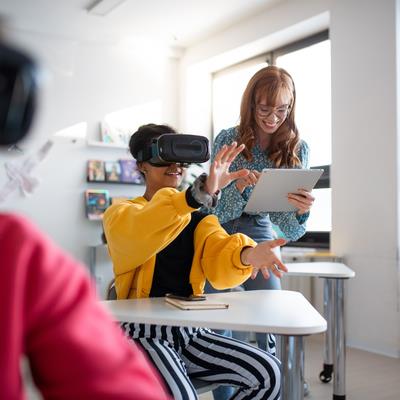Introduction

Educational research through theories establishes the foundational structure that students need to comprehend teaching methods and educational policies as well as learning processes. Research theory focuses on reviewing books and building conceptual structures, and developing explanation models for educational events, while empirical studies use data collection through experiments.
The field of education experiences continuous evolution through technological influences and modifications in social culture, and psychological discoveries. Theoretical research allows educators, along with policymakers and researchers, to transform educational progress through better teaching strategies alongside improved learning environments along innovative policies.
The article investigates theoretical research significance for education in conjunction with practical applications and future influence on contemporary learning settings.
Theoretical research plays a crucial role in the development and refinement of educational theories. Many foundational theories, such as:
These theories, derived from theoretical research, have shaped education for decades, guiding teaching practices and curriculum development.
Empirical studies need theoretical work to generate their conceptual basis which serves as their foundation. Researchers perform experiments along with surveys and case studies to test the hypotheses and theoretical models which originate from theoretical research. Constructivist learning theory serves as an example because it leads scientists to conduct multiple empirical examinations which study student engagement and collaborative learning alongside problem-solving methods.
By analyzing educational theories, researchers develop innovative teaching strategies that cater to diverse learning needs. Some practical applications include:
These pedagogical models have been widely adopted based on theoretical research findings.
Theoretical research is instrumental in shaping educational policies at local, national, and global levels. Concepts such as:
These frameworks help governments and institutions implement policies that foster fair and effective education systems.
Education is an interdisciplinary field that overlaps with psychology, sociology, technology, and even neuroscience. Theoretical research integrates insights from these disciplines to enhance educational practices. For example:
By connecting these disciplines, theoretical research fosters a holistic approach to education.

Theoretical frameworks help educators design effective curricula that align with learning objectives. For example:
These approaches ensure that curricula remain relevant and effective in modern education.
Research theory offers instruction to teacher education programs by revealing best practices for teaching methods. According to Malcolm Knowles’ Andragogy Theory, adult learners learn better when the learning process focuses on their previous experiences in addition to their self-direction, which guides professional development for educators.
When conducting reflective teaching research, teachers learn to evaluate their instructional approaches consistently, which results in better teaching results.
Educational assessments rely on theoretical models to evaluate student learning effectively. Examples include:
These theoretical insights lead to fairer, more comprehensive assessment strategies.

With digital transformation in education, theoretical research supports the development of effective e-learning models. Popular frameworks include:
Theoretical studies continue to refine these models, improving digital learning effectiveness.
Theoretical research helps educators create inclusive classrooms by exploring factors such as:
By applying these research findings, schools can foster equitable learning experiences.
AI is reshaping education through personalized learning and intelligent tutoring systems. Theoretical research in machine learning applications for education is expected to enhance adaptive learning platforms, automate grading, and provide real-time student feedback.
Research on motivation and cognitive psychology supports gamified learning experiences, which enhance student engagement and retention. Future studies may focus on refining game-based learning models to maximize educational benefits.
As education becomes more digitized, theoretical research will address ethical concerns, including:
Addressing these issues is crucial for the responsible integration of technology in education.
Neuroscientific research is revealing new insights into how the brain processes information. Future theoretical studies may focus on:
These findings could revolutionize educational methodologies.
Theoretical research is also shaping sustainability education, exploring:
Future studies may enhance sustainability efforts within education systems worldwide.
Theoretical research serves as essential tools to develop educational paths for future education development. It develops essential frameworks that direct curriculum development along with teaching methods as well as technology utilization and policy creation work to ensure education remains both relevant and inclusive and effective. Future educational improvement will depend on theoretical research that addresses new educational challenges alongside optimizing results of AI and neuroscience-based teaching and learning development.
Theoretical research investments provide educators and policymakers, and institutions with the tools to build an innovative and equal learning environment for twenty-first century learners. For more you can get your research done by professionals at StudyCreek.
Further Reading
Delivering a high-quality product at a reasonable price is not enough anymore.
That’s why we have developed 5 beneficial guarantees that will make your experience with our service enjoyable, easy, and safe.
You have to be 100% sure of the quality of your product to give a money-back guarantee. This describes us perfectly. Make sure that this guarantee is totally transparent.
Read moreEach paper is composed from scratch, according to your instructions. It is then checked by our plagiarism-detection software. There is no gap where plagiarism could squeeze in.
Read moreThanks to our free revisions, there is no way for you to be unsatisfied. We will work on your paper until you are completely happy with the result.
Read moreYour email is safe, as we store it according to international data protection rules. Your bank details are secure, as we use only reliable payment systems.
Read moreBy sending us your money, you buy the service we provide. Check out our terms and conditions if you prefer business talks to be laid out in official language.
Read more